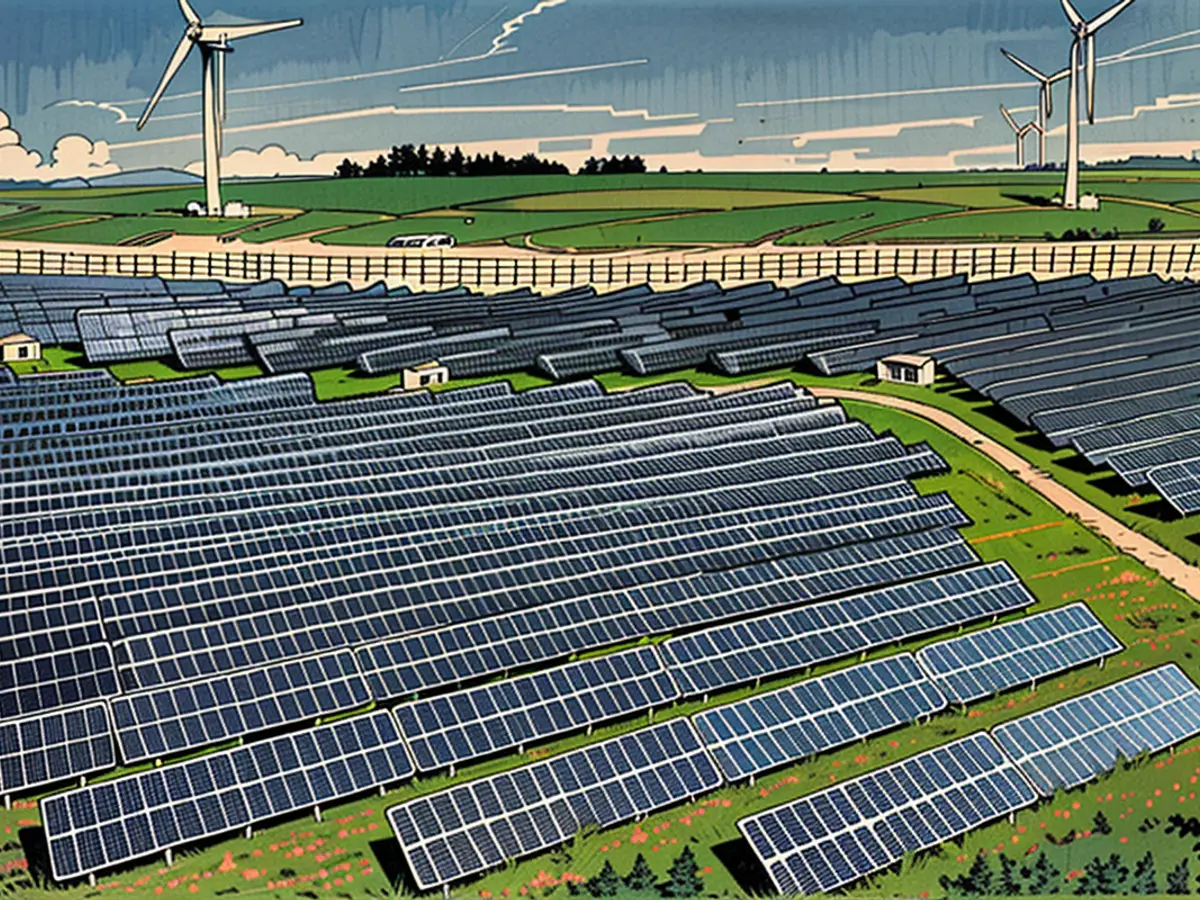- Enhanced Renewable Energy Production: The Rise of Sustainable Electricity Sources
Germany is continually leaning on electricity sourced from eco-friendly resources for its power needs. The Federal Statistical Office reports that during the first half of 2024, the contribution of wind, solar, hydro, and biomass power to the overall electricity production hit an all-time high of 61.5%, accounted for 61.5% of the total electricity production.
Wind power led the charge among energy sources, contributing 33% to the total, marking an 11.9% increase compared to the same period in the previous year, largely due to the exceptionally windy weather conditions.
Solar power generation witnessed a 8.3% boost, contributing 30.5 billion kilowatt-hours, representing nearly 13.8% of the total electricity production.
Although coal remains a significant player, producing 45.9 billion kilowatt-hours, a decrease of 26.4% from the previous year, this is the lowest amount of coal-derived electricity since monitoring began in 2018. Despite this, coal remains the second most utilized energy source, contributing 20.9% to the total. Natural gas made up 14.6% of the electricity mix.
Germany imported 23% more electricity and exported 15% less during the half-year, resulting in a net import of 9.8 billion kilowatt-hours, contrasting with the small net export of 2 billion kilowatt-hours registered in the first half of 2023.
The demand for electricity in Germany remained relatively consistent at 229.9 billion kilowatt-hours. However, the domestic electricity production decreased by 5.3% to 220 billion kilowatt-hours.
Press Release by Destatis: Electricity Production 1H/2024
The shift towards renewable energy sources in Germany is evident, as electricity sourced from wind, solar, hydro, and biomass accounts for an all-time high of 61.5% in total electricity production. Solar power generation experienced a significant increase, contributing 30.5 billion kilowatt-hours, showcasing the growing importance of clean energy.








